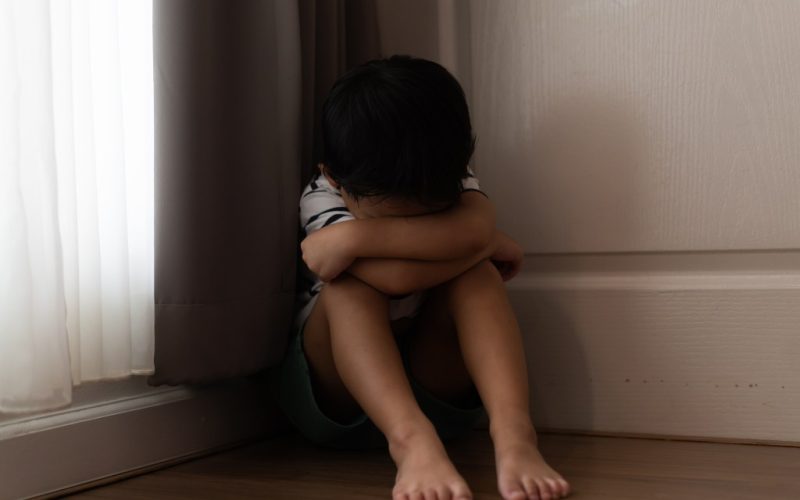Amid a crisis in services for young kids with disabilities and developmental delays, New York promised families a major investment in early intervention programs.
But lawmakers have yet to make good on their word.
Each year, just over half of infants and toddlers who qualify for services do not receive them all on time. The delay can be devastating. Research shows intervention is more effective the sooner a child receives it, so any gaps in service may have a lasting impact.
Against that backdrop, Gov. Hochul and the Legislature stepped in to help, passing a budget with a 5% reimbursement rate increase, effective that month. With a shortage of providers exacerbated by the pandemic, and even more who had chosen to remain virtual, lawmakers hoped to incentivize therapists to meet young children in person and stay in the field.
Budget documents show the state share was supposed to be $6.1 million this year, with additional funding through the federal Medicaid program.
But more than eight months later, the increase has still not been released by state officials, who blame a review process for the delay. That’s little comfort for a backlog of families in need of services and suffering the consequences, including 11,711 young children in New York City last fiscal year.
Celia tried getting help for her son, Anais, when he was not speaking at the same time as other kids his age. Due to problems at home, the toddler had been diagnosed with an acute stress disorder that was impacting his speech and ability to regulate his emotions.
“He wasn’t really speaking,” Celia told the Daily News.
Anais qualified for sensory integration therapy, but it took over a year for Celia in East Flatbush to connect with a coordinator and start services. She got help from a local organization, United for Brownsville, that provided an advocate from outside the system.
In the meantime, Anais got kicked out of three daycares. His mom lost a few jobs because of child care issues. It was not long until Anais, 4, aged out of the system and moved onto preschool.
“If they get to these kids as soon as their parent acknowledges their kid needs extra help to reach these milestones, I feel it would be an easier process later on,” Celia said. “Because they’re not tackling this early, children get older, we get stuck in our ways.”
State officials said the rate increase, though already enacted in the state budget, still has to go through a final state review, before it undergoes a federal approval process. During a meeting with providers Wednesday, they declined to give a timeline for the increase.
“Governor Hochul and the State Health Department remain committed to supporting and enhancing early intervention services that serve 70,000 children statewide in addition to increasing child care resources, and expanding access to high quality health care services,” said Erin Clary, a department spokeswoman.
Advocates told The News that budget officials have asked the state Department of Health, which runs the program, to find savings that can be used to fund the increase.
New York also needs permission from the feds to implement the rate increase, but officials have yet to file the necessary paperwork — despite uncertainty around the upcoming presidential transition to Donald Trump, who has promised cutbacks to federal programs.
“We have a new administration coming in, an entirely new leadership within their health system, and there’s a lot of uncertainty over whether requests like this for rate increases for essential services in New York will be approved or not,” said Alice Bufkin, associate executive director for policy and advocacy at the Citizens’ Committee for Children.
“So it’s particularly urgent that we get this request in before we have the transition.”
Betty Baez Melo, the director of early childhood education at Advocates for Children, said there is increasing concern that in the last quarter of the year, the federal share may not be retroactive to April, when the increase should have first gone into effect. An additional 4% increase was also slated to go into effect next year for underserved areas, while the state is already behind on its plans.
“Because of low reimbursement rates, there’s been an increase in families waiting for services to begin on time, and in many cases it’s because there’s a shortage of providers and services for telehealth would not be appropriate,” Baez Melo said.
It took almost half a year for Sheena Ayala to get physical therapy for her 1-year-old son, Jadeden — and even then, all the system could offer the Bronx mom was remote services.
“That’s a long time for someone to wait when you’re so desperate and concerned with your child not wanting to crawl, not standing. Not doing what he should be doing in his months and his milestones,” Ayala said.

Ayala bounced around therapists until she found a provider through the New York Center for Child Development, but they can only meet twice per week on Zoom. The 5% increase is supposed to provide an incentive for providers to meet their clients in person.
“Although she’s fantastic, I’m mom — I’m not a physical therapist,” Ayala said. “So it’s hard when you don’t have someone physically there.”
Sarah McLaughlin, a clinical supervisor at the New York Center for Child Development, said New York should hold up their end of the bargain.
“It went into effect,” said McLaughlin, “and they’re not upholding their end of the deal.”








